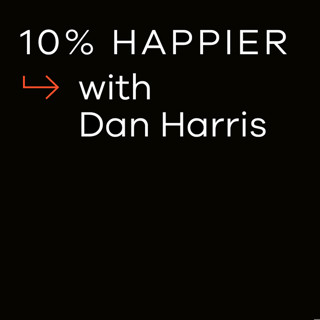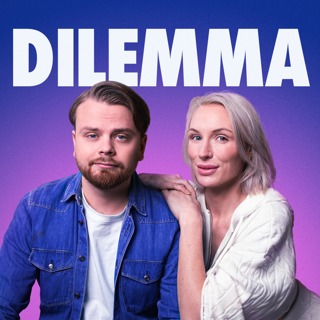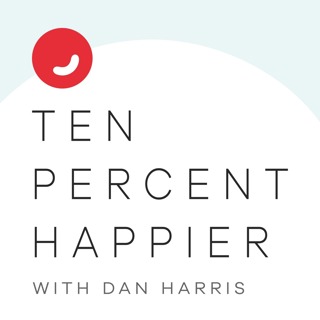
How to Understand Oneness | Roshi Norma Wong
Today we’re diving into a concept that is simultaneously one of the oldest contemplative cliches and one of the most profound head scratchers — oneness. Can *you* be one with everything if *you* don’t really exist? And, even if we manage to grok this idea, what are the practical ramifications? Actually, this is just one of the many riddles and paradoxes we’ll be exploring today. My guest is Roshi Norma Wong. She was recommended to us by frequent guest and friend of TPH, The Reverend angel Kyodo Williams. Roshi Norma is a Zen Master, a life-long resident of Hawaii, a former State legislator, and abbot of a Zen temple called Anko-in. In this conversation, we talk about: • Understanding -- and experiencing -- oneness • Removing the binary between relaxation and focus • Why she thinks we need to cultivate pride and humility simultaneously • Why she thinks that before we try to solve the world’s problems, we need to become better people • And why our current moment of compounding global catastrophes presents us with an unprecedented opportunity Speaking of transformation in the face of crisis, we’ve always done our best to use this podcast as a place to figure out how to navigate our ever-shifting world. Over the last year, for example, we’ve spoken with experts about how to cope with the coronavirus, from dealing with anxiety and grief to parenting in a pandemic to worries about money. The practice of meditation undergirds all of the practical takeaways you hear us discuss on this podcast–and many of our podcast guests have contributed to our companion meditation app. Our app helps you understand both how to practice meditation and how meditation can help you navigate our ever-changing world. We hope that you'll subscribe to our app to learn how to care for yourself and others during crises (which are, after all, inevitable). To make it easier, we're offering 40% off the price of an annual subscription for our podcast listeners. We don’t do discounts of this size all the time, and of course nothing is permanent—so get this deal before it ends on April 1st by going to www.tenpercent.com/march, for 40% off your subscription. Full Shownotes: https://www.tenpercent.com/podcast-episode/roshi-norma-wong-331
17 Mars 202157min
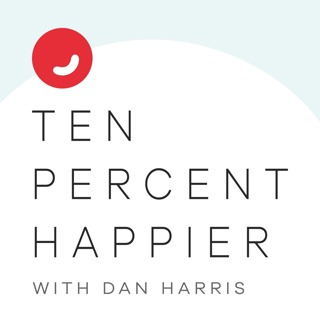
How This Plague Ends (and What It Tells Us About Human Nature) | Nicholas Christakis
We all remember that fateful week, almost exactly a year ago, when it all seemed to sink in for so many of us–when Tom Hanks got sick, the NBA suspended games, and the (now former) President addressed the nation in primetime. The big question now is: When and how will this plague end? My guest today has a clear vision for how things are likely to play out from from here. His name is Dr. Nicholas Christakis. He’s a physician, sociologist, and director of the Human Nature Lab at Yale University. He’s written a number of books, but there are two that we will discuss in this episode. His latest is called Apollo's Arrow: The Profound and Enduring Impact of Coronavirus on the Way We Live. The other book we’re going to talk about is on a related subject. It’s called Blueprint: The Evolutionary Origins of a Good Society. In it, Christakis argues that human beings are fundamentally good. In fact, as you will hear, it is our goodness that the virus exploits. One more order of business: when COVID began affecting our lives, most of us were in immediate crisis, wondering about the answers to very basic questions: How do I get food safely? How do I care for my children and/or do my job under less-than-ideal circumstances? Will my loved ones and I be safe? In response to our changing reality, we’ve used this podcast to help you figure out how to navigate our new world. We’ve spoken with experts about how to cope with this crisis, from dealing with anxiety and grief to parenting in a pandemic to worries about money. As you know, the practice of meditation undergirds all of the practical takeaways you hear us discuss on this podcast–and as you may or may not know, many of our podcast guests have contributed to our companion meditation app. We hope that you'll subscribe to the Ten Percent Happier app to learn how to care for yourself and others during crises (which are, after all, inevitable). To make it easier, we're offering 40% off the price of an annual subscription for our podcast listeners. We don’t do discounts of this size all the time, and of course nothing is permanent—so get this deal before it ends on April 1st by going to to https://www.tenpercent.com/march for 40% off your subscription. Full Shownotes: https://www.tenpercent.com/podcast-episode/nicholas-christakis-330
15 Mars 20211h 3min

How to Break Your Anxiety Habit | Judson Brewer
To mark the first anniversary of the week in March 2020 when Covid fundamentally altered our lives, we’re launching a special two-part series. Today, we’re going to be talking about anxiety, which has been spiking during the pandemic. My guest is Dr. Jud Brewer, a psychiatrist and deep dharma practitioner who argues that anxiety is a habit–one that you can unwind. Then, next Monday, we’ll talk to Nicholas Christakis, who is not only a doctor but also the head of the Human Nature Lab at Yale, about when the pandemic will end, and what this ordeal has revealed about our species. But today it’s anxiety with Jud Brewer. Some of you may know Jud from the Ten Percent Happier app, where he teaches a mindful eating course. He’s also been on this show several times. He is the Director of Research and Innovation at the Mindfulness Center at Brown University. He’s got a number of apps that use mindfulness to treat addiction, including Eat Right Now, Craving to Quit, and Unwinding Anxiety. He also has a brand new book, called Unwinding Anxiety. In this interview, we talk about: how exactly mindfulness can be harnessed to deal with anxiety; what is anxiety anyway, and why does he view it as a habit? And we publicly debate something we have been privately discussing: Is there any level of stress or anxiety that is healthy? One more thing: We are looking for a podcast marketer. If you love this show, marketing, and building relationships, we would love to have you on the team to help us grow Ten Percent Happier and our future shows. Please apply at https://www.tenpercent.com/careers. Full Shownotes: https://www.tenpercent.com/podcast-episode/judson-brewer-329
10 Mars 20211h 11min

A Conversation about Abuse, Agency, and Mindfulness | Tanya Selvaratnam
Before we dive in, a warning: this conversation includes descriptions of abuse and violence. As you may know, March 8th, the day we’re dropping this episode, is International Women’s Day. We have a story today about intimate violence, which has long been a problem for women around the world, and has only intensified during the pandemic. My guest is Tanya Selvaratnam, a writer and artist who I’ve known socially for many, many years. I was truly shocked when Tanya’s name surfaced in the media three years ago, in connection with the case of Eric Schneiderman. Eric was the celebrated Attorney General of New York State. He was also a regular on the local meditation scene. I knew Eric and Tanya were dating. What I did not know was that, behind the scenes, Eric was allegedly physically and emotionally abusing Tanya. She has now come out with a book, called Assume Nothing, which goes into searing detail about not only the alleged abuse, but also about how she flipped the script, regained her agency, helped bring her alleged abuser down, and how she has healed subsequently -- in no small part through meditation and therapy. Please note: If you or someone you know is suffering from abuse, you can find resources curated by Tanya at the “full shownotes” link below. We’d also like to provide more context about the allegations Tanya shares in this interview: When the allegations of abuse against New York Attorney General Eric Schneiderman by Tanya and three other women were first made public in The New Yorker in May 2018, Schneiderman quickly resigned. In a statement at the time, he said, “serious allegations, which I strongly contest, have been made against me.” He also said, “While these allegations are unrelated to my professional conduct or the operations of the office, they will effectively prevent me from leading the office’s work at this critical time. I therefore resign my office.” After a six-month investigation, prosecutors declined to bring criminal charges against Schneiderman, citing legal impediments, including statutes of limitations. But the district attorney assigned to the case by Governor Andrew Cuomo also said that she “believed the women who shared their experiences” with investigators. In response, Schneiderman said, "I recognize that District Attorney Singas' decision not to prosecute does not mean I have done nothing wrong. I accept full responsibility for my conduct in my relationships with my accusers, and for the impact it had on them." I should also note that our team reached out to Eric Schneiderman and that he declined to comment for this episode. Two more items: First, remember to check out “In Plain Sight: Lady Bird Johnson,” a new podcast from ABC News, on Apple Podcasts (https://apple.co/ladybird), Spotify (https://spoti.fi/3ukYgoq), or wherever you’re listening now. Finally, we are looking for a podcast marketer at Ten Percent Happier. If you love this show, marketing, and building relationships, we would love to have you on the team to help us grow Ten Percent Happier and our future shows. Please apply at https://www.tenpercent.com/careers. Full Shownotes: https://www.tenpercent.com/podcast-episode/tanya-selvaratnam-328
8 Mars 202146min

Uprooting Your Delusions | Andrea Fella
I know you guys, and it is pretty clear you love deep dharma episodes. Today we’ve got a dharma episode that is quite timely. As you all know, we live in a time when most people are getting their news from carefully curated information silos. As a result, we often create very specific views— about public figures, current events, our fellow citizens — and we can cling pretty tightly to those views. Today we’re gonna talk about how useful and even pleasurable it can be to dig into the roots of these biases and dismantle them— to pop our bubbles of delusion. It can be a relief. It can be eye-opening. It can change the way you relate to yourself and to other people. My guest is Andrea Fella. She is the co-teacher at the Insight Meditation Center and the Insight Retreat Center in Redwood City, California. She has been practicing Insight Meditation since 1996, and teaching Insight Meditation since 2003. She is particularly drawn to intensive retreat practice, and has done a number of long retreats, both in the United States and in Burma. During one long practice period in Burma, she ordained as a nun. Also: We are looking for a podcast marketer! If you love this show, marketing, and building relationships, we would love to have you on the team to help us grow Ten Percent Happier and our future shows. Please apply at https://www.tenpercent.com/careers. And don’t forget to check out the new ABC podcast In Plain Sight: Lady Bird Johnson, which you can find here: https://abcaudio.com/podcasts/in-plain-sight/ Full Shownotes: https://www.tenpercent.com/podcast-episode/andrea-fella-327
3 Mars 20211h 10min

How to Make a Masterpiece | Pete Docter
We’re all creatives, whether we think of ourselves that way or not. In so many aspects of your life, from planning your future to planning a meal to curating your social media, you need to be able to both envision and then execute. And how you work with your mind in these moments is key. Today, we are going to hear from a master creator -- the mind behind brilliant Pixar movies such as Inside Out, Up, and the recently-released Soul -- about how to run a creative process at the highest possible level. (I have a six-year-old, and, in my opinion, one of the worst parts of the job of being a dad is sitting through insipid children's entertainment. But the aforementioned films have been both thrilling and moving to consume, for both me and my son.) My guest today is Pete Docter, who directed all three of those films. He is the Chief Creative Officer of Pixar. He is also a meditator and a practicing Christian whose films are each motivated by a big, pressing question he is posing to himself about his own life. In this conversation, he takes us inside the making of his films, most notably Soul, for which he and his team had to invent a coherent metaphysical scheme to explain both the afterlife -- and the before. We also talk about how his spiritual practices support his storytelling endeavors, and how to power through the pain, frustration, and embarrassment of trying to make something truly original. One more thing: We would appreciate it if you could take a few minutes to help us out by answering a survey about your experience with this podcast. Our team here cares deeply about you, our listeners, and we are always looking for ways to improve. Please go to https://www.tenpercent.com/survey. And thank you. Full Shownotes: https://www.tenpercent.com/podcast-episode/pete-docter-326
1 Mars 202146min

A New Way to Think About Addiction | Annie Grace
The stereotypical depiction of fighting addiction makes it seem highly unpleasant: White knuckling, sweating it out, detoxing, going cold turkey–you get the picture. This applies to classical addiction, and also to the less dangerous (but nonetheless nettlesome) unhealthy habits and compulsions that we all wrestle with. My guest today takes a very different approach. She aims to harness the pleasure centers of the brain as a way to handle addictive habits—and, controversially, she doesn’t believe you need to go cold turkey on alcohol, which is the main intoxicant she has targeted. Her name is Annie Grace, and she is the author of a very popular book called This Naked Mind. (Shout out to my friend and colleague Steve Baker, the executive producer of Nightline, who has gotten a lot out of Annie’s work, and turned me on to her.) This episode is the second in a two-part series we’re doing this week on addiction. If you missed it, go check out Monday’s episode with Buddhist teacher Kevin Griffin, who has worked to combine the dharma and the 12 steps. Speaking of the 12 steps, many people in the AA community are quite critical of Annie Grace, and she will address that in our conversation. We also cover: Her personal story, and why she now drinks as much alcohol as she wants to–which is none at all; the connection between her approach and Evelyn Tribole’s “intuitive eating”; and her thoughts on working with other addictions, including nicotine, gambling, shopping, pornography, and video games. Also: We would appreciate it if you could take a few minutes to help us out by answering a new survey about your experience with this podcast. We want to hear about your experience with our show, because we care deeply, and we are always looking for ways to improve. Please go to https://www.tenpercent.com/survey. Thank you! Full Shownotes: https://www.tenpercent.com/podcast-episode/annie-grace-325
24 Feb 20211h 2min
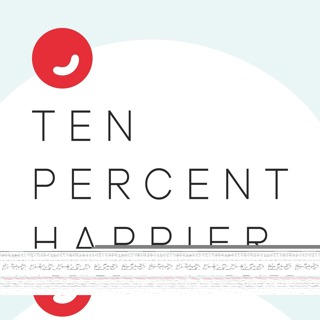
Your Craving Mind | Kevin Griffin
This is an episode about our craving, grasping minds. Whether you have struggled with a classic addiction or not, we all have addictive tendencies; we all wrestle with desire. I often think about a provocative question once posed by my friend, Dr. Jud Brewer, a Buddhist practitioner and addiction specialist: Are we all addicted? The implied answer is yes. My guest today thinks about addiction in a similarly broad and compelling way. He talks about addictions to substances like drugs and alcohol, but also addiction to self and addiction to racism. Kevin Griffin is a longtime Buddhist practitioner and 12 Step participant, and is one of the founders of the Buddhist Recovery Network. He has trained with many of the legendary teachers we have interviewed on this show, including Jack Kornfield and Joseph Goldstein. He has written many books, including One Breath at a Time: Buddhism & the Twelve Steps. His latest is Buddhism & the Twelve Steps: Daily Reflections: Thoughts on Dharma and Recovery. This is the first in a two part series we’re doing this week on addiction. During the pandemic, we’ve seen alcohol use go up and drug overdose deaths rise. On Wednesday, we’re going to talk to a woman named Annie Grace, who has come up with what she believes is a powerful alternative to AA. But today, it’s Kevin Griffin. We cover a lot of ground here, including: How he connects the dharma to the 12 Steps, and a Buddhist list called the three refuges. But we start with what he calls the foundational addiction: addiction to the self. Podcast Survey - We would appreciate it if you could take a few minutes to help us out by answering a brand-new survey about your experience with this podcast. We want to hear about your experience with our show, because we care deeply, and we are always looking for ways to improve. Please go to https://www.tenpercent.com/survey. Thank you! Full Shownotes: https://www.tenpercent.com/podcast-episode/kevin-griffin-324
22 Feb 20211h 1min
